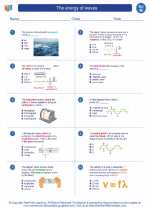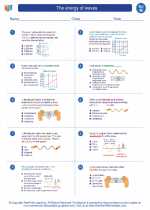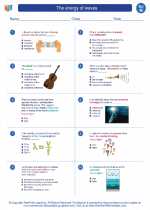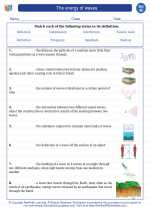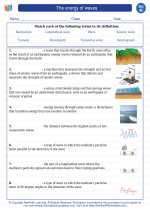Physical Science
Physical science is the study of non-living systems and encompasses a variety of fields such as physics, chemistry, astronomy, and earth science. It focuses on understanding the properties and behaviors of matter, energy, and the physical universe.Key Concepts in Physical Science
- Matter: Everything that has mass and occupies space is considered matter. It can exist in different states - solid, liquid, or gas.
- Energy: The ability to do work or cause change. It exists in various forms such as kinetic, potential, thermal, electrical, and chemical energy.
- Force and Motion: The interaction between objects that causes changes in their motion. This includes concepts such as gravity, friction, and inertia.
- Atoms and Elements: Atoms are the basic building blocks of matter, and elements are made up of a specific type of atom. The periodic table organizes the known elements based on their properties.
- Chemical Reactions: Processes that result in the transformation of substances into new substances with different properties.
- Waves and Light: The behavior and properties of waves, including light waves, sound waves, and electromagnetic waves.
- Earth and Space: The study of the Earth, its atmosphere, and the universe beyond. This includes topics such as geology, meteorology, and astronomy.
Study Guide for Physical Science
To excel in physical science, it's important to grasp the fundamental concepts and principles. Here are some key study tips to help you succeed:
- Understand the Basics: Take the time to understand the fundamental concepts of matter, energy, and forces. These form the foundation for more advanced topics.
- Practice Problem-Solving: Physical science often involves solving problems using mathematical equations and scientific principles. Regular practice can improve your problem-solving skills.
- Use Visual Aids: Visual aids such as diagrams, charts, and videos can help you grasp complex concepts and make connections between different topics.
- Review and Test Yourself: Regularly review your notes and textbooks, and test yourself on key concepts. This can reinforce your understanding and identify areas that need further study.
- Seek Help When Needed: If you're struggling with a particular topic, don't hesitate to seek help from your teacher, classmates, or a tutor. Sometimes a different perspective can make things click.
By mastering the foundational principles and regularly practicing your skills, you can build a strong understanding of physical science and excel in your studies.
.

